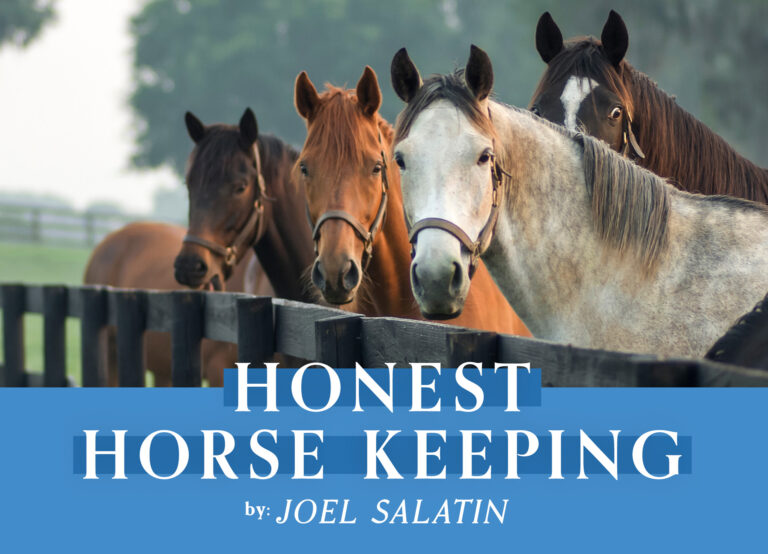Become an Active Citizen of the Parallel Economy in 2023!
Commit to becoming an active citizen of the Parallel Economy this year!
Gab’s progress in creating the Parallel Economy’s web infrastructure has been both extraordinary and inspiring. Andrew Torba’s leadership has been unparalleled, but the Parallel Economy is bigger than Gab’s management. The Parallel Economy requires the hundreds of brave businesses that have trail-blazed on Gab Marketplace, but even they are not the whole of the Parallel Economy, even on Gab.
The Parallel Economy needs everyone to succeed, and that means the thousands of Gab users and hundreds of thousands of Gab readers to be active citizens. Building a new economy is not a spectator sport. The Parallel Economy needs all hands on deck!
You must become an active citizen of the Parallel Economy!
The Parallel Economy grows in strength directly proportional to the financial strength of its individual citizens, not just its businesses and infrastructure. A flourishing Christian society requires a prosperous Parallel Economy, and a prosperous Parallel Economy develops by its citizens actively improving their individual and family financial health.
Make 2023 the year you take an active role in the Parallel Economy! To help, here are a few brief, easy, and fruitful financial steps to start your journey toward becoming a productive and active citizen of your Parallel Economy!
Step 1: Begin a financial fitness regimen immediately!
All citizens of the Parallel Economy will enjoy better spiritual, mental, and physical health if they eliminate as much debt as possible, especially from credit cards and student loans. Debt is the weapon of choice for “The Economy” to enslave the people who suffer under it. Those with less debt and more savings are better able to resist economic coercion like that seen by the vaccine mandate. Debt is like fat – the best way to get healthier is to burn it off!
The most effective way to start eliminating debt and getting financially healthier is to start an established program to do so. The easiest program to find is probably Dave Ramsey’s Financial Peace University (FPU). Although it’s not perfect, people who follow Ramsey’s Baby Steps method will be far better financially fit than if they did nothing. If you are struggling with any kind of debt, join FPU at a local church or community center immediately. You can find classes in your local area here. If you cannot afford to purchase the class, reach out to your local FPU coordinators and explain your situation. Churches and coordinators often offer scholarships for those truly in need. Start immediately! You will be glad you did!
If Ramsey doesn’t work for you, seek out other personal finance books or programs that you like better. Other possible avenues could be to explore Robert Kiyosaki’s “Rich Dad/Poor Dad” books and play his highly recommended Cashflow games. The bottom line is that you must do something! None of these programs are perfect but do not use that as an excuse not to act. These programs are good enough to improve your financial health.
Financial fitness is 80% action and only 20% knowledge. Get off the couch and get financially fit today!
Step 2: Expand your financial and economic education.
The average citizen of the Parallel Economy will need to be far wiser on financial matters than those left behind in “The Economy.” That means everyone must strive to better understand personal finance, especially how to develop replacements for many of the financial services “The Economy” provides. But again, this is not only a job for the entrepreneurial among us. Anyone can and should get involved in building parallel institutions.
A particularly powerful method for families and individuals to separate from “The Economy” is to wean themselves away from the big banks. Nelson Nash’s book Become Your Own Banker should be required reading for everyone in the Parallel Economy. Nash’s “Infinite Banking” concept teaches families how to use specialized whole life insurance to manage cash flow, save money, and become their own source of financing for cars, college, and other major life expenses – even homes! The Parallel Economy will need both financially strong families and viable alternatives to banks. Infinite Banking can assist mightily with both. Take a look at Nash’s website and check out Infinite Banking.
If you don’t think Infinite Banking is for you, take other actions to move forward. Consider leaving the big banks like Chase, Bank of America, or Wells Fargo and join with a local credit union. Local credit unions often have lower rates for car and other loans, better savings and checking account plans, and have a greater positive impact on local economics than national banks.
The key is to always keep learning about practical economics and finance with a view to how you can improve the Parallel Economy!
Step 3: Study Christian economics.
Christians across denominations have thought about economic issues for years and we can learn much from those who came before us. For instance, Nash based Infinite Banking on Biblical foundations and his reading of free market Austrian economics. Nash insisted that Infinite Banking only works with life insurance from mutual life insurance companies. These companies are wholly owned by policyholders, not stockholders, and are focused on financial health rather than quarterly returns to investors.
Mutual companies act much like modern-day Medieval guilds, institutions championed by G.K Chesterton and Hilaire Belloc in the early 20th century. Both men sought to establish a Christian alternative to both capitalism and socialism, which they called Distributism. Distributism stressed localism, private property, family self-sufficiency, and subsidiarity, all principles that our Parallel Economy values. Reading the Distributists can help us focus and sharpen our thoughts on how to move forward. Read Chesterton’s The Outline of Sanity and Belloc’s The Restoration of Property and Economics for Helen. Make modern Distributist blogs like Practical Distributism regular reading.
Get back into communion with the Christian economic thinkers of the past. We’ll only become stronger by doing so!
Step 4: Support your local church.
The first three steps seek to prepare the person and family for becoming active citizens of the Parallel Economy. These are just preludes to the real work – taking positive action in the community! All positive action should begin locally, and the community begins at your local church.
Tithe. Giving 10% of your income to your church is easy, basic, and exceptionally powerful! If you feel you can’t afford to tithe, see Step One. For many first starting out, tithing can seem an insurmountable expense. Give what you can while you work on mastering your finances. One of the most amazing practical Christian experiences is that people’s financial well-being often increases after committing to tithe. God really does entrust more to His servants as they mature as good stewards of His wealth and demonstrate, through giving, that they trust in his ability and willingness to provide and increase their blessings. Most churches offer members ways to choose which activities their money will directly support. Direct your money to church activities that build the local Christian community.
Next, consider serving in or starting a stewardship ministry at your church to teach others how to become better stewards of God’s money. You can also introduce concepts from Christian Nationalism and the Parallel Economy to your church. First approach individuals that are likely to be receptive to these messages. Remember, many in their ignorance might initially find these concepts scary, distasteful, or even hateful. Build allies in the congregation, start small, and introduce individual concepts into church activities when you think the time is right.
The Parallel Economy will grow best through its citizens building stronger local churches. Become a leader in your church!
Step 5: Participate in Gab’s #ParallelEconomy
As important as our churches are, if you try to spread ideas of the Parallel Economy at yours, it may begin to feel more like a combat zone than a sanctuary. Many congregants may be indifferent and some may be actively hostile to your efforts. Everyone needs places where they can recharge and interact with like-minded people. We citizens of the Parallel Economy are no different. Our efforts to win our local churches will be supported by citizens helping other citizens, especially on Gab. Your local church might be your battlefield. Let Gab be your rampart and refuge in that struggle. Do not neglect its walls.
As much as possible, buy from other citizens in Gab Marketplace. Consider becoming a GabPRO member, and learn to employ GabPay and other features. Take action to help the friends and families you find in the Gab community. Exchange ideas on building the Parallel Economy and work cooperatively with others to start businesses, networks, and other infrastructure necessary for the Parallel Economy.
One truly inspiring trait is the Gab community’s generosity in donating money to campaigns that help members in need. Generating thousands of dollars, one individual contribution at a time, to assist those of our ranks in need is a wondrous sight to behold! The Gab community’s generosity to needy members will be the best money we’ll ever spend on Gab. As you progress in your financial health, devote increasing amounts of money to the well-being of others. Giving truly is a wonderful thing.
Step 6: Pray constantly.
Pray constantly for God to direct and bless your efforts in the financial realm. Prayer is certainly not the least important step in this list – far from it – but it is the last on the list to remind us that building the Parallel Economy is not an end unto itself, but remains merely a means to the true end – performing the work of Jesus Christ on Earth and our local communities. Only through fervent prayer and devotion can our work on developing the Parallel Economy stay focused on expanding His dominion over the nations, instead of merely replacing one Mammon-worshiping system with another.
Even though I have offered a few specific options that I have found personally valuable here, there are many different ways individuals can take each of these six steps. Feel free to customize your path as you see fit. The key is to move forward on all fronts, regardless of how you choose to do so!
Building the Parallel Economy is everyone’s responsibility. Everyone reading this plays a role. Embrace yours with passion and dedication.
Please follow me on Gab for more tips and discussions on how to build the Parallel Economy. If you would like personal help with becoming more financially fit, please contact me at [email protected]!
This year, commit to becoming an Active Citizen in the Parallel Economy!

The Parallel Economist is a Christian dedicated to building the #ParallelEconomy, one individual and family at a time. He is certified financial coach and a recently retired armed forces veteran whose career was cut short by the vaccine mandate. If you would like some help with your own finances, please sign up for a free 30 minute consultation at http://calendly.com/financialcoach_br and let’s work for a better future for you and your family together!





